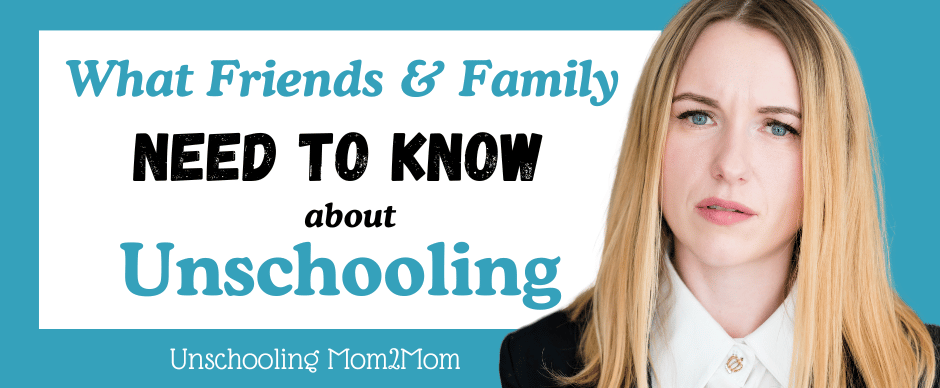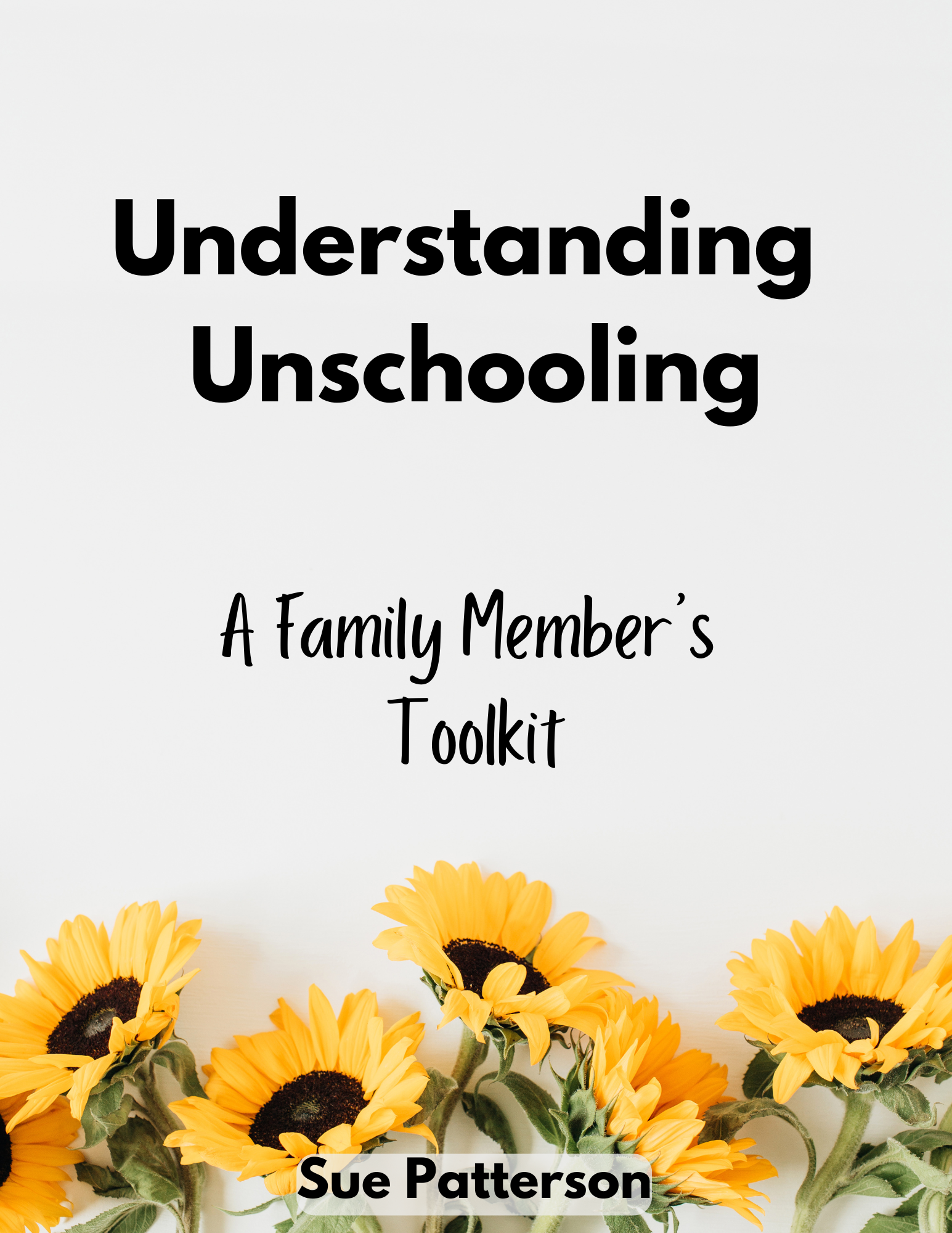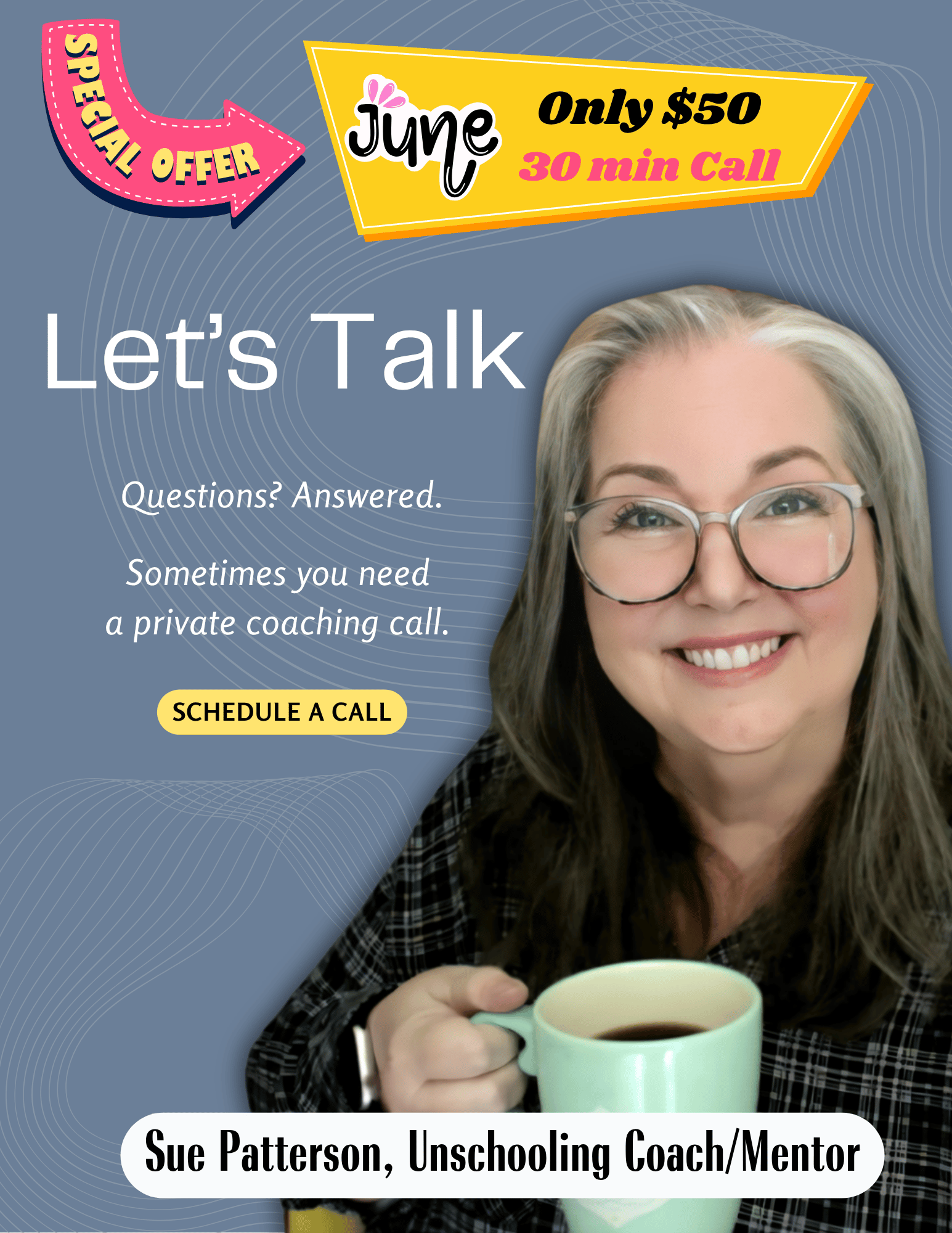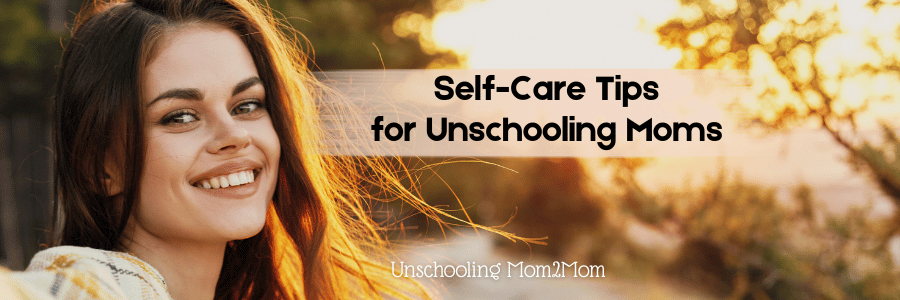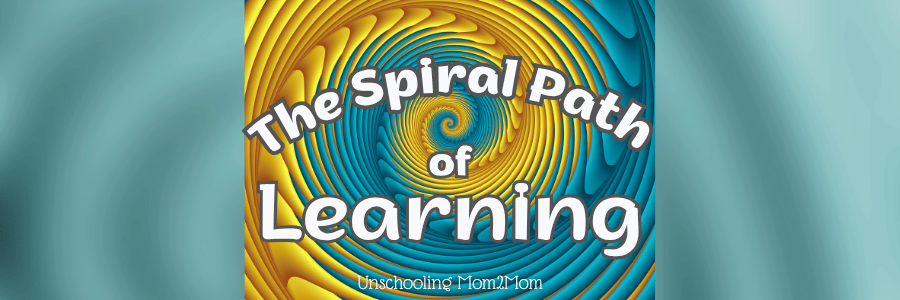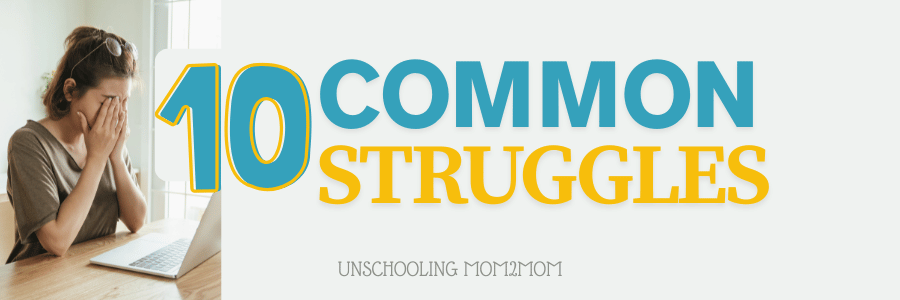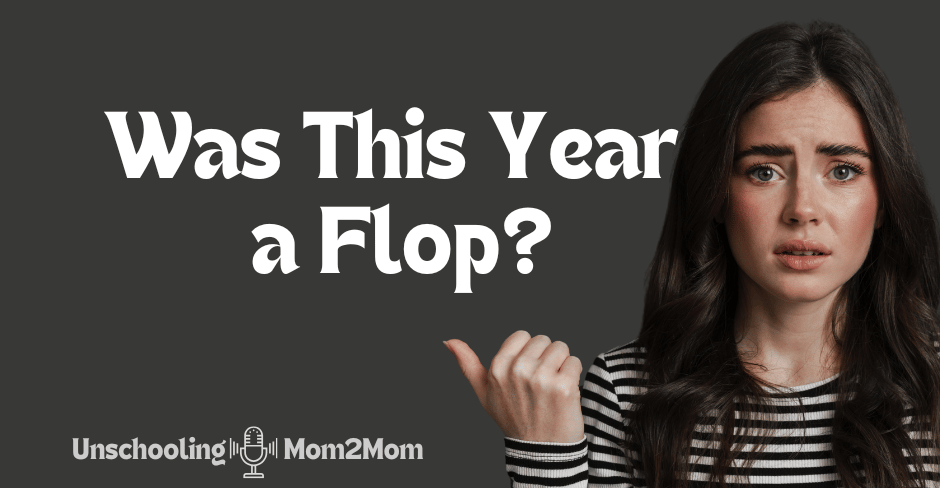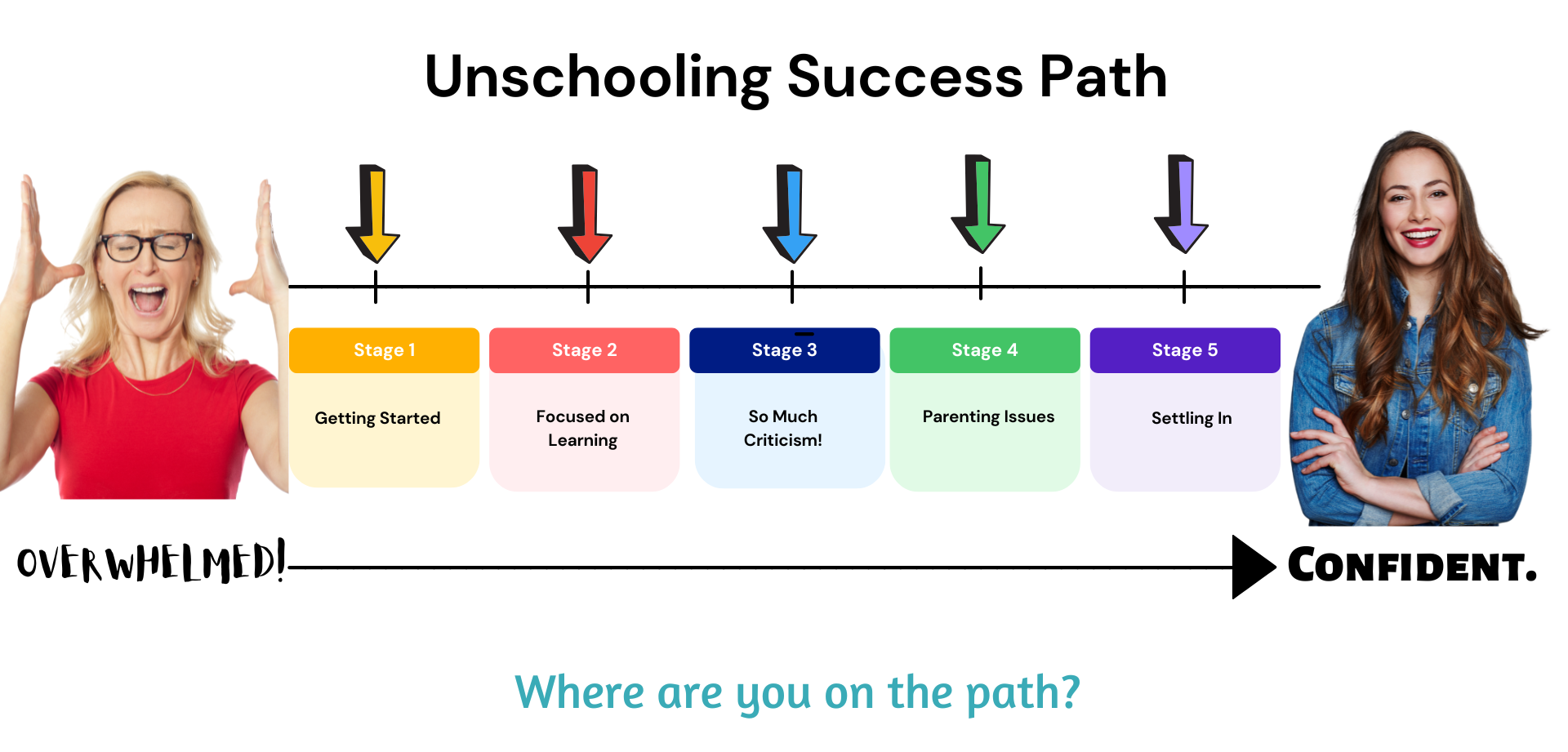Understanding the Benefits of Unschooling
Unschooling can be confusing, but understanding it is the first step to providing support for family and friends.
Unschooling:
What You Need to Know to Support the Ones You Love
1. What is Unschooling?
- Unschooling is not "no schooling."
It’s an approach that encourages learning based on the child’s natural curiosity and interests. Think of it like how kids learn to walk, talk, or explore their hobbies—organically, and in ways that make sense to them. - Learning is happening all the time.
Whether it's cooking, playing, exploring nature, or reading, unschooled kids engage in meaningful learning constantly, without the constraints of a traditional school schedule.
2. How Does This Work Without Teachers or a Set Curriculum?
- Parents act as guides.They provide resources, answer questions, and help facilitate learning when needed. Unschooling doesn’t mean children are left on their own—it’s a collaborative process.
- Real-world experiences ARE the classroom. Kids learn math through games or cooking, history through documentaries or travel, and problem-solving through real-life challenges. Every day is a chance to learn something new.
3. What About Socialization?
- Socialization happens naturally.
Unschoolers often engage with their communities, participate in group activities, clubs, sports, and interact with people of all ages—not just kids their own age in a classroom. - Developing independence and confidence.
Unschooling nurtures kids who are comfortable with social interactions in various settings. They often have more time to explore interests that lead to deep connections with others who share their passions.
4. But the World Has Changed – Is This Really a Good Idea?
- Yes! The world is more adaptable now.
With technology and shifting job markets, kids today need to be flexible, creative, and critical thinkers. Unschooling encourages those exact traits. So many more ways exist for kids to learn new information - they're not limited to the traditional classroom experience. - The world needs independent thinkers.
If you’re a grandparent, your children (the parents) are choosing this path because they trust themselves —something they probably learned from you! While it might look different from the past, these are skills today’s world values more than ever. Be proud that you raised a problem solver!
5. It’s Okay to Choose Differently
- Every family is unique.
Just because a family chooses unschooling doesn’t mean they’re rejecting traditional paths. They’re simply choosing what works best for their situation and their children. - Support matters more than agreement.
You don’t have to fully understand or agree with unschooling to offer love and support. Trust that the parents have their children’s best interests at heart.
6. How Can I Help?
- Ask questions with an open mind.
Show curiosity, not criticism. Listen to what excites the parents and children about this path. - Encourage their passions.
When a child shares something they’ve learned or are excited about, engage with them. Ask them about their projects or interests, and see how learning is happening all around them.
7. More Reassurance
- Unschooled kids are thriving.
Many go on to college, start businesses, or pursue careers that they’re passionate about. Unschooling doesn’t limit them—it empowers them to explore and shape their futures. - Your support means everything.
Even if this is unfamiliar or different, your love and encouragement can make a world of difference to the unschooling family in your life.
Need more information?
Podcast Transcript:
Today I want to speak to your friends and family. To those who love someone who’s chosen this different path for their children’s education—unschooling. Maybe you’ve heard the term and thought,
"Wait, they’re doing what?"
It’s natural to feel a little concerned. But I want to take a few minutes to clear up some misconceptions and hopefully ease your mind. I know you’re here because you care about the kids in your life, and that’s a beautiful thing.
First off, let me address one of the big misconceptions right away: No, your family member has not joined a cult, and there’s no Kool-Aid involved! I know it can feel like unschooling is so different from the traditional education system that it seems radical. But really, the heart of unschooling is about empowering kids to learn in ways that are natural, engaging, and aligned with how they truly grow. The goal? Thriving kids, involved parents, and a strong family connection. We’re just doing things a little differently—trust me, it’s not as scary as it sounds.
I’m Sue Patterson, and this is the Unschooling Mom2Mom podcast. I’ve been helping families figure out how to step away from the school approach to learning since we walked away from schools ourselves nearly 30 years ago. I had no intention of homeschooling - I hadn’t even HEARD of unschooling. But school just didn’t fit.
I thought it would be a temporary thing, just to give them some time to mature and give us a chance to connect and explore the world together. I just wanted things to slow things down a little bit. But over time, I couldn’t see a reason to send them back. I always told myself,
"I’ll do this until it stops working. I pay taxes, schools have to take them back."
And one of my kids did go to high school for a year and a half, but then, mid-year returned to unschooling. Now, they’re all grown, in their 30s, with homes, families, degrees, and businesses of their own. All the regular things. The doors didn’t close for them because we took an unconventional path. Actually, more opened because they had so many more opportunities to explore and discover interesting things about the world.
I know one of the biggest worries from family members—whether you’re a grandparent, an aunt, or a close friend is:
"How will they learn everything they need to know without school or structure like that?"
Most of us grew up going to school, so that’s all we really know.
But it’s not really the only way kids can learn.
You know that saying,
"You learn something new every day."
It’s true, isn’t it? We don’t stop learning just because we leave a classroom. Kids are the same way—unschooling embraces the fact that children are naturally curious and capable of learning from the world around them, in ways that suit their individual interests and pace.
Here’s the thing—kids are learning all the time. They’re not learning the way you might be used to, with textbooks, worksheets, or a set schedule of subjects, but they’re learning in ways that are often more meaningful and long-lasting.
Think of it like this:
Instead of following a one-size-fits-all curriculum, we’re creating an individualized learning experience for each child, based on what excites them. And yes, there’s structure—but it’s flexible and designed around what works for that particular child. It’s not chaotic or aimless - even though it might look that way compared to most of our school experience with learning. But Kids are learning through their daily lives—whether that’s baking and learning fractions in the kitchen, reading a book about dinosaurs because they’re fascinated by them, or visiting a local museum and diving deep into history.
The world is full of opportunities to gain knowledge, and unschooling is about recognizing and embracing that. It’s not just academic, either. Unschooling allows for emotional intelligence, problem-solving skills, and a strong sense of independence to develop naturally.
Sometimes, when you hear 'unschooling,' you might picture children doing whatever they want, whenever they want, with no direction or learning at all. That’s a common misconception, but it couldn’t be further from the truth. Unschooling is an intentional, thoughtful approach to learning that honors each child’s interests and natural curiosity.
I have free PDF to help with some of the more common questions - and even myths you may have heard. Also a blogpost (above) that is kind of a bullet list to help you understand more about unschooling. I want to be sure you have whatever you need to get the answers you’re looking for. I’ll put those links in the show notes.
Because, yes, unschooling is legal.
But no, there’s no national or worldwide system set up as a governing body. Different states have different rules when it comes to legal requirements, and I have a variety of resources that your unschooling family member has already tapped into. You can ask them what’s expected where you live. But the best explanation is that each family is kind of their own private school… functioning within the loose framework the state sets, but then has the freedom and flexibility to do what’s best for the kids on an individual basis.
Another big question is often about unschooling kids getting into college - can they? And yes, they can and they do! They take the assessment tests - often at the community college level and then takes the courses they need for the degree they’re seeking. Unschoolers go on to univiersities, trade schools, entrepreneurship—you name it. The beauty of unschooling is that it encourages critical thinking, creativity, and problem-solving—skills that are incredibly valuable in today’s world. Many colleges now even actively seek out homeschoolers and unschoolers because they’ve developed the ability to take ownership of their education.
And then, as they get older, unschoolers often pursue internships, apprenticeships, or other projects, which give them real-world experience and connections. They’re not only prepared for life after unschooling—they’re often more engaged and ready to contribute to the world because they’ve been given the freedom to figure out what they truly love.
I have several podcasts about how unschoolers are getting into college and I even wrote a book called Homeschooled Teens... where 75 Young People from 15-39 answered questions about what their lives were like as teenagers taking this unconventional approach. I’ll put the links for these resources to get this at Amazon.
I get it—this way of learning can seem unfamiliar, maybe even risky. But unschooling is an intentional choice by parents who want to help their kids develop into curious, confident, capable adults. And they’re succeeding! We have several decades now of unschooled kids who go on to higher education, start businesses, or dive into careers they love.
If you want to support your loved one’s choice, the best thing you can do is stay curious and ask questions with an open heart. Listen to the parents, talk to the kids, and see what excites them about this journey. And trust that the parents are doing what they believe is best for their child. After all, that’s what we all want, right?
At the end of the day, unschooling may not be what you’re used to, but it’s a path that works for so many families. Your support means the world to them, and it can really make a difference in helping them feel confident in their decision. So, keep the conversation going with them. When you talk with the kids, see what excites them and move the conversation in that direction. We all can kind of get into ruts in our conversations with the kids… things like, “how was your school day?” or “what did you learn today?” may not really work. I’m not sure those questions work that well for school kids either - I remember hearing a lot of “I dunno” or “nothing” or just shrugs! So the unschooled kids aren’t that much different! Nobody really wants to be quizzed - they can feel that there’s some performance expectation happening, and most of us shy away from that.
But if you talk with them about their hobbies, or what games they’re playing, or if they’ve watched anything interesting - you might get better answers. Think about a Saturday… what kinds of fun things do you think kids do when the weekend is theirs. That’s what unschooling is kind of like - a life full of Saturdays! It’s exciting really. You’d be surprised what learning weaves into all the different activities kids are engaging in!
And, just in case you’re wondering, this isn’t something families are doing without support. The internet has so many resources now to help parents find interesting ways to dive into topics they don’t know about. I have a website FULL of ideas and a coaching group where parents brainstorm and share resources all the time. Your loved one is not alone in this.
Unschooling is really about building trust between parents and kids. It’s about trusting that children are naturally curious and will seek out learning opportunities when they’re ready. And when we have a lot of trust, we can see what they’re learning. Parents are more like guides and resource finders. The relationships that grow from this approach are incredibly strong. It’s not about opting out of education—it’s about stepping into a more flexible, personalized way of learning.
If you want to learn more or if you have more questions, I mentioned the free resource I have for you. It’s called
'Understanding Unschooling: A Family Member’s Toolkit.'
Thanks for tuning in today, and remember—this journey may be different, but it’s one full of growth, trust, and connection. I am confident that the PDF and blogpost (above) will answer many of the concerns you may have.
If it would help, and you want to talk to someone about it, you can always book a quick 30-minute call with me and we can tackle any additional questions you have.
So! Until next time, I’m Sue Patterson, enjoy your family and happy unschooling!


